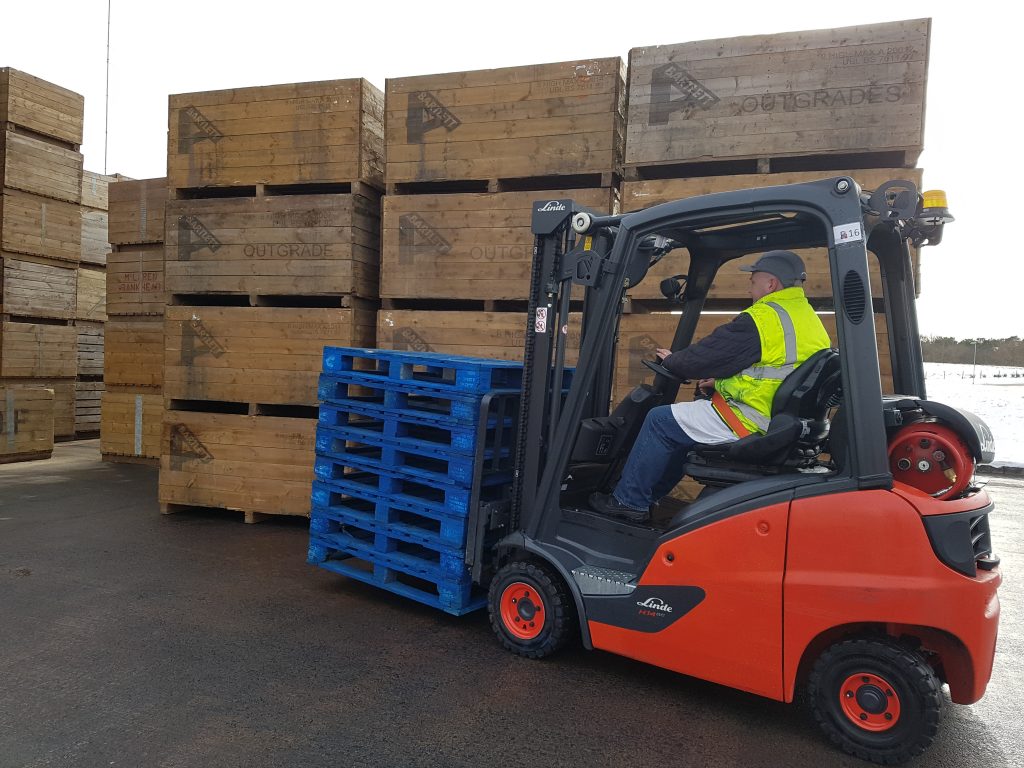Pallet Pooling Perfection Perks Potato Provider
15th February 2018

Potato supplier Albert Bartlett says it is enjoying significant environmental savings within its supply chain thanks to the use of CHEP’s pooled pallets. The family-run business, based in Airdrie, Scotland, supplies own label and branded lines of potatoes to retail, wholesale, food service and processing customers, and recently signed a three-year contract renewal with CHEP.
The new contract will see CHEP supply an estimated 350,000 B1210A standard pallets (1200mm x 1000mm) per year, along with around 10,000 B1208A Euro pallets (1200mm x 800mm) per year to support distribution to the near-continent.
The use of CHEP’s pooled pallet is “realising significant annual environmental savings for Albert Bartlett when compared to white wood pallets”, including claims that it is:
> Reducing CO2 emissions by 496,833 kg; the equivalent of:
– 454,000 truck kms; 2.8 million car kms; or 11 truck trips around the world.
> Saving wood resources by 344,031 dm3; the equivalent of:
– 324 trees; 21.9 million pencils; or 420,000 books.
> Reducing waste by 31,592kg; the equivalent of:
– 7 truck loads of waste; 2.9 million coffee cups; or the waste generated by 24,276 people everyday.
Commenting on these savings, Russell White, Head of Operations, said: “Albert Bartlett is committed to providing value added products in such a way that minimises the impact of these activities on the environment. We’ve been dealing in fresh potatoes since 1948 and in 2015 added frozen potato products to our portfolio. The savings that we’re able to realise through the use of CHEP’s pooling model are fantastic. It feels like we are making a real difference, working together to minimise the impact our supply chain is having on the environment.”
To compare the impact its pooled pallets have on the environment, CHEP commissioned a third-party independent study to evaluate the use of its pallets versus white wood pallets if these were used within Albert Bartlett’s supply chain as an alternative platform. This Life Cycle Analysis (LCA) study considers all environmental impacts through the product life-cycle and follows ISO-14044 methodology .
CHEP UK & Ireland Managing Director, Helen Lane says she is “delighted, but not surprised” with the savings being realised by Albert Bartlett:
“Environmental sustainability is at the heart of everything we do at CHEP. 100% of our timber now comes from forests certified as sustainable. Our pallets are continually repaired, reused and shared, and because they are made to a higher standard than white wood pallets, they last up to 10-times longer. It’s great to be working with such a like-minded business as Albert Bartlett where consideration of the environmental impact we have is front and centre of our business philosophy.”

